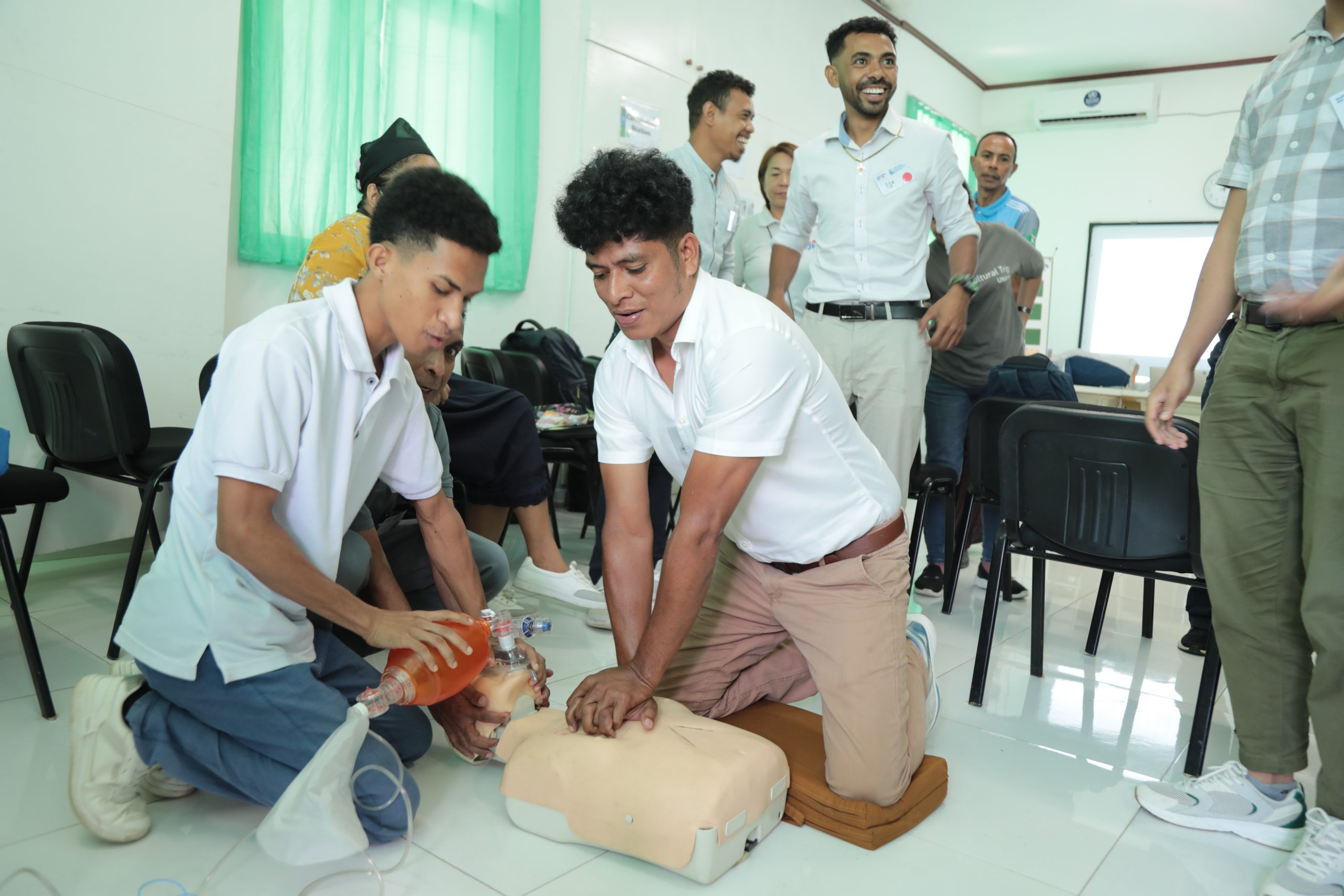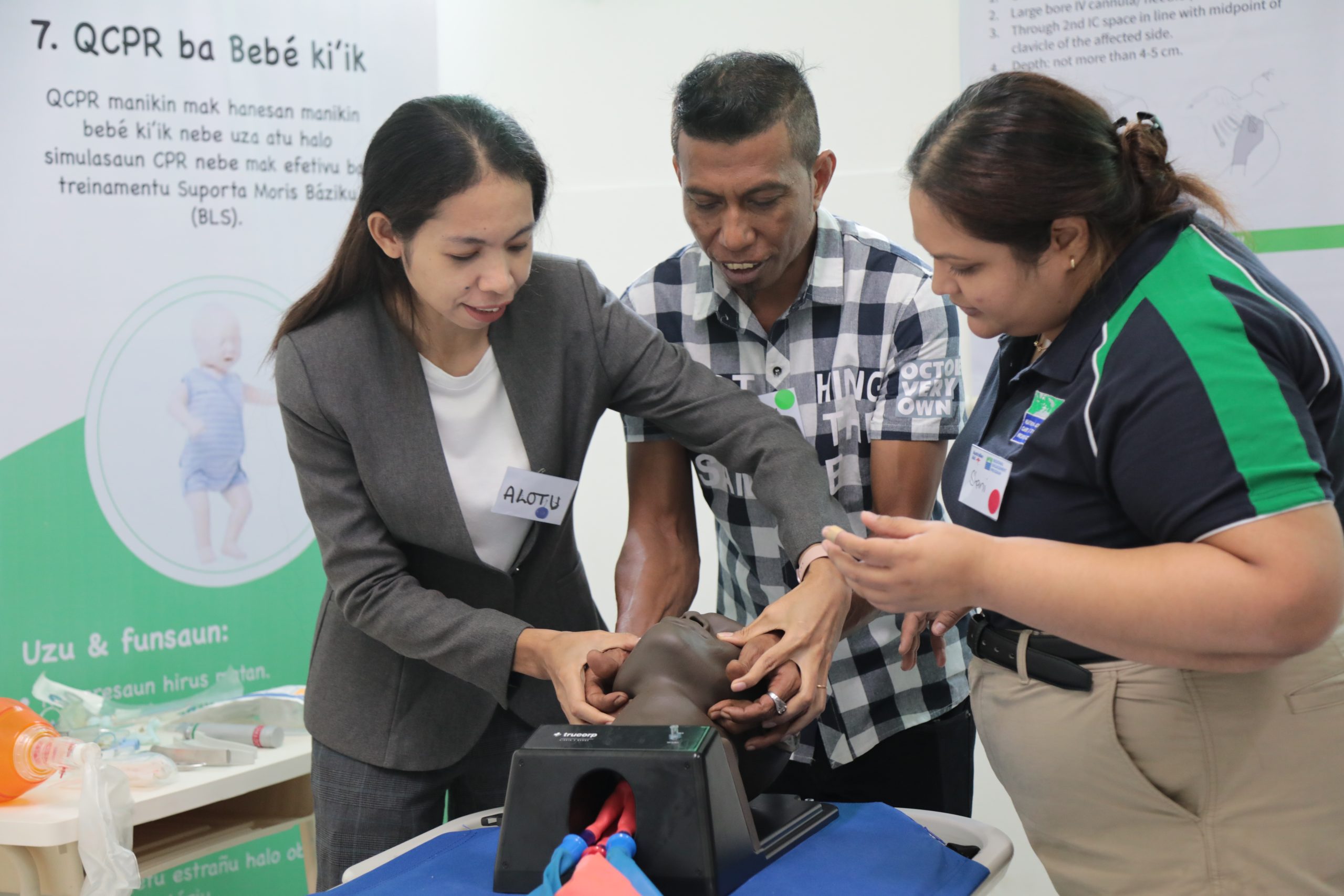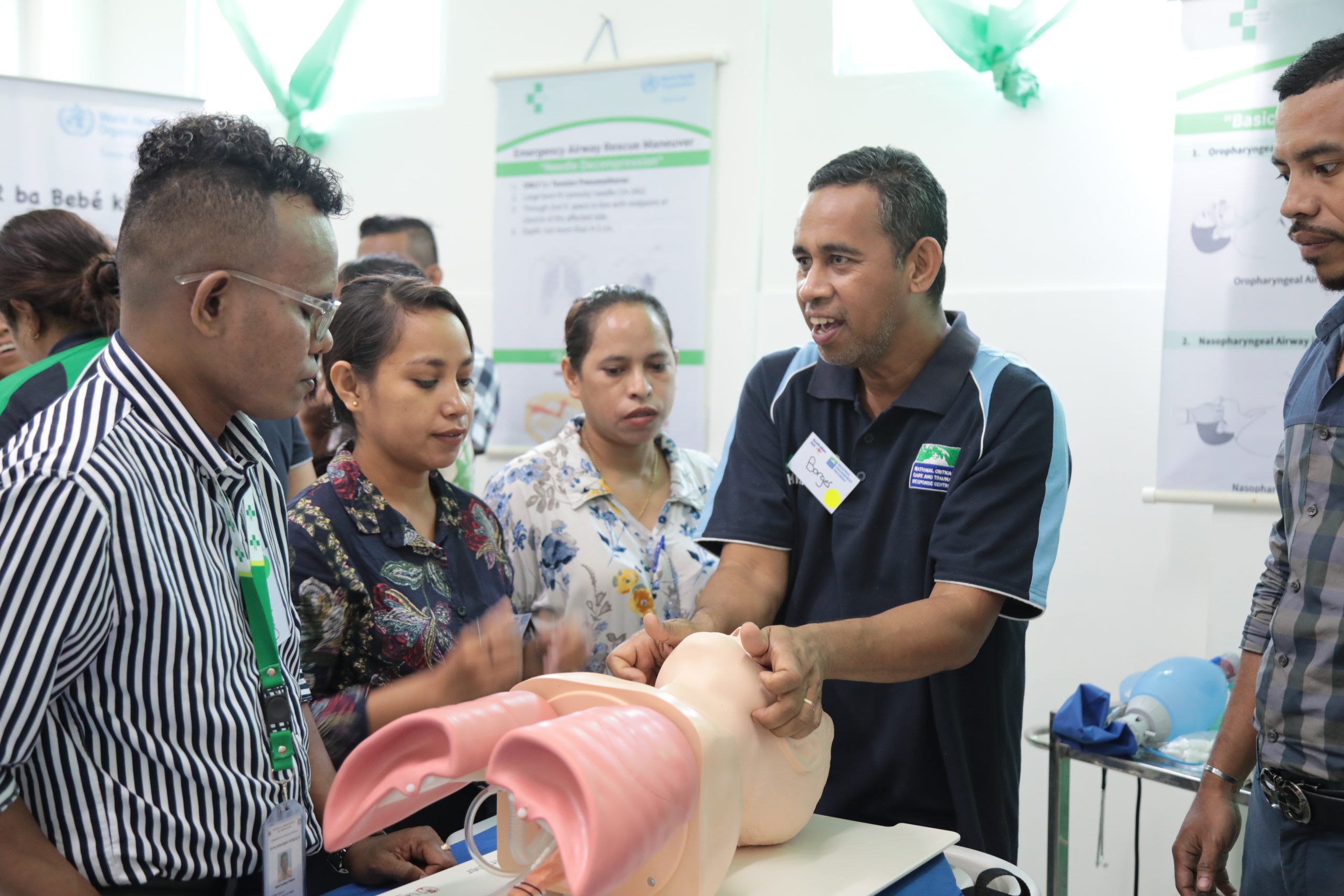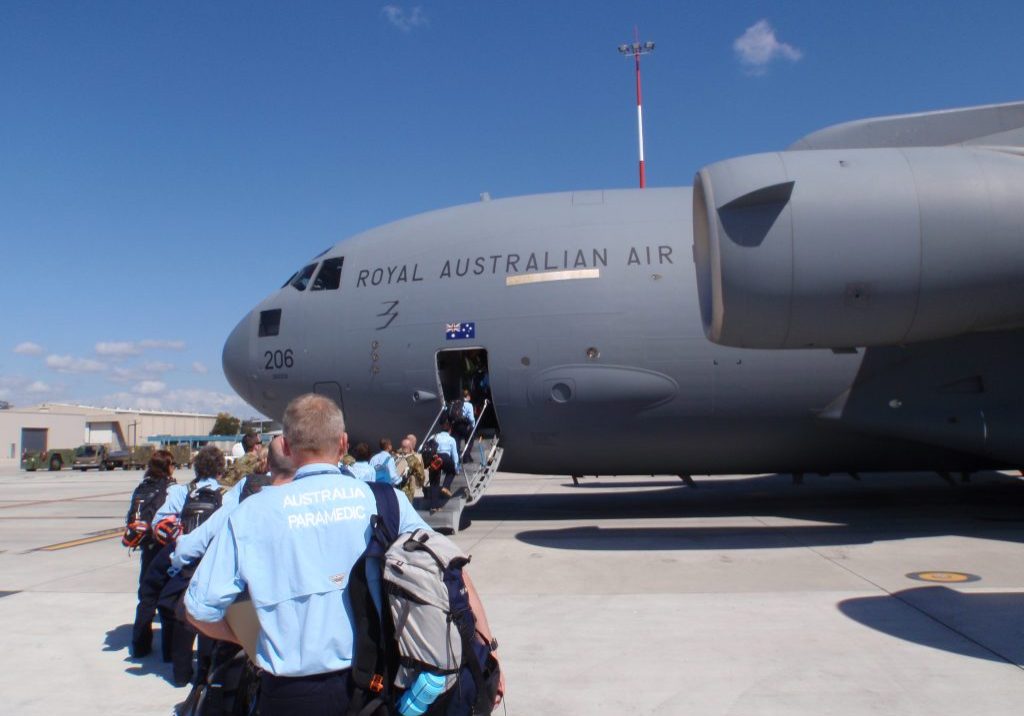Building critical care capacity in Timor-Leste with INSP-TL
07 Jul 2025
Written by Carla Yeung
In a collaborative effort between the Instituto Nacional de Saúde Pública de Timor-Leste (INSP-TL) and the National Critical Care and Trauma Response Centre’s (NCCTRC) Regional Engagement Program (REP), local healthcare professionals recently completed the Essentials of Critical Care (ECC) course. Participants represented health services from all municipalities across Timor-Leste.
Designed with local needs in mind, the ECC course aims to strengthen frontline capability in caring for critically ill patients, particularly in resource-limited settings. This initiative supports NCCTRC’s ongoing commitment to helping Asia-Pacific countries prepare for and respond to health emergencies.
“We focus on what really matters in these contexts — basic assessment, good decision-making, teamwork, and compassionate care,” said Francisco Borges, Educator and faculty member from INSP-TL who co-facilitated the course. “It’s about building confidence and skills in a way that makes sense for our healthcare workers.”
This course is really useful because it fits our context.
Tailored for nurses and clinicians across all levels of the health system — from health posts and community health clinics to referral hospitals and Guido Valadares National Hospital (HNGV), Timor-Leste’s national hospital — the course covers essential topics including nursing assessment, basic life support, oxygen therapy, and the early recognition and management of deterioration. It also introduced simulation training, a relatively new concept in healthcare education, allowing participants to practise real-time decision-making in a supportive environment.
“This course is really useful because it fits our context,” Borges said. “It’s not only about clinical skills but it also helps us think clearly, make decisions, and communicate well with our team.”



The ECC course is funded by the Australian Government’s Department of Foreign Affairs and Trade, as part of Australia’s broader commitment to regional health security. By working with in-country faculty like Borges, REP ensures the training remains locally relevant, culturally appropriate and sustainable, supporting long-term capacity building across Timor-Leste’s health system.











